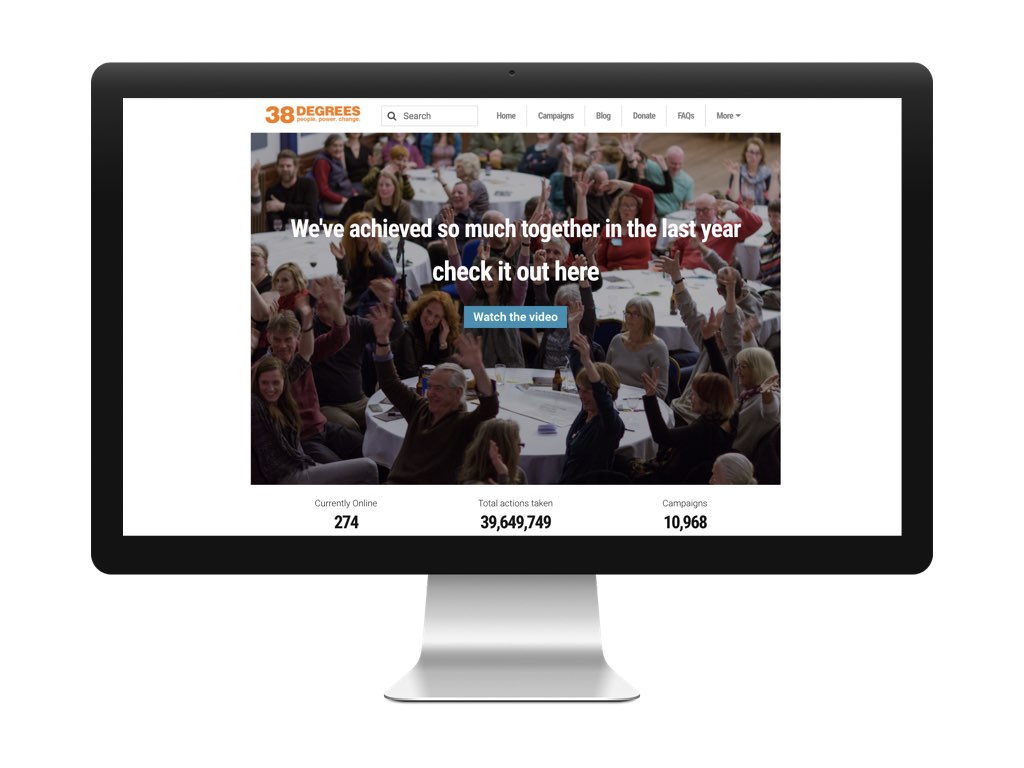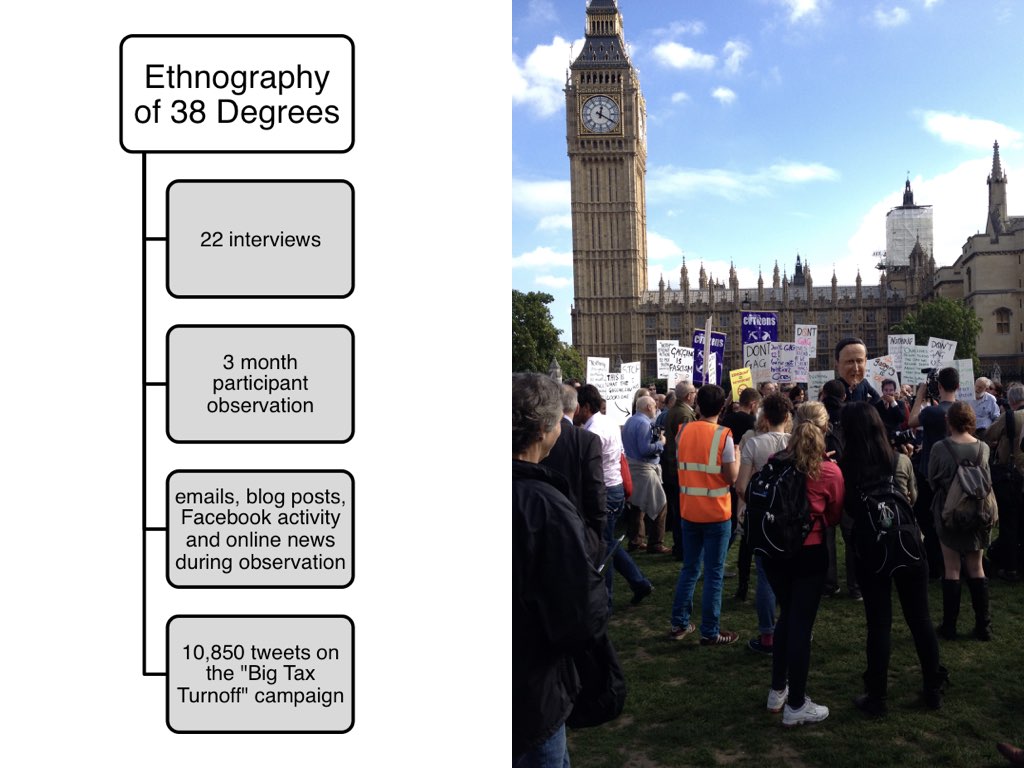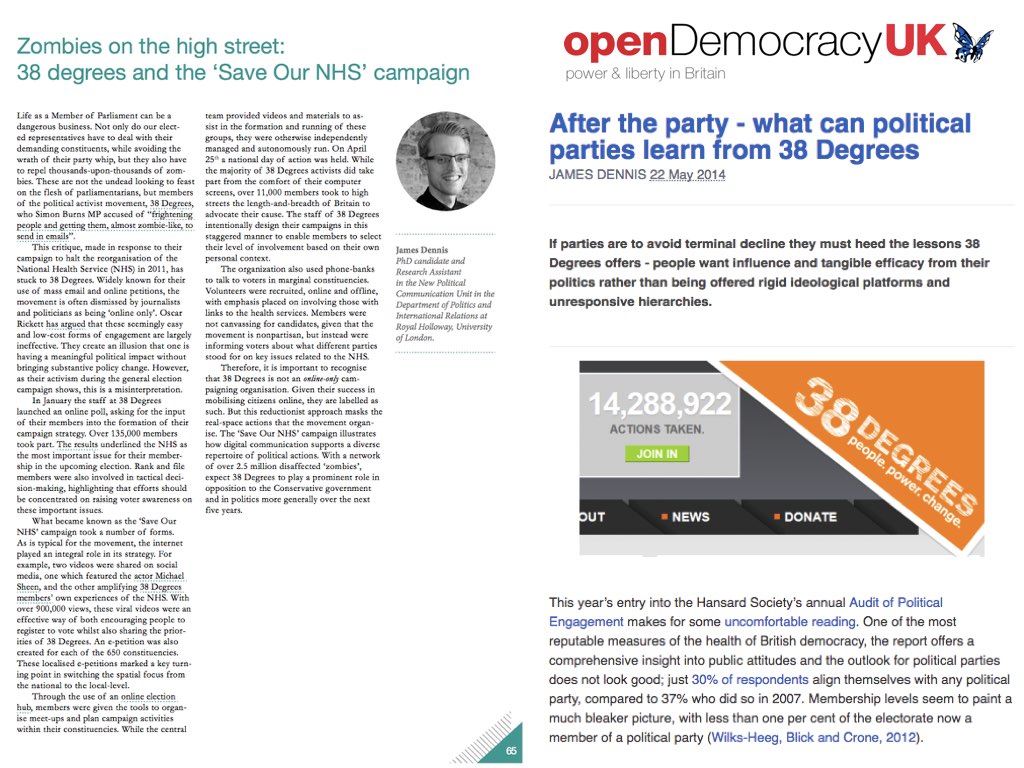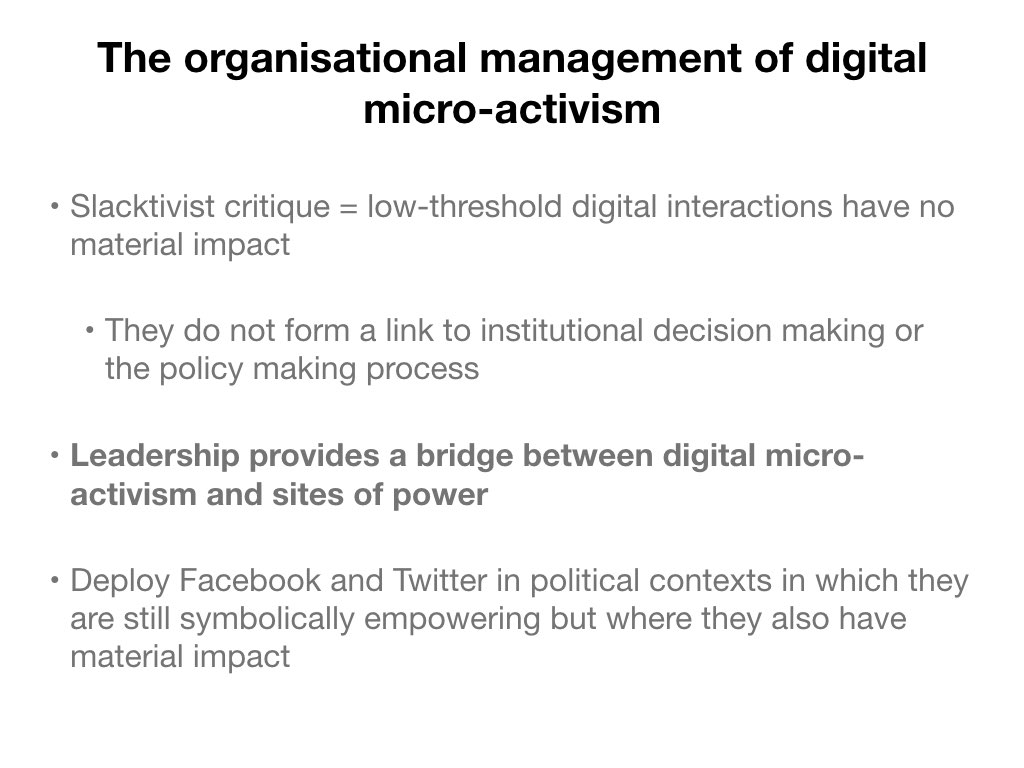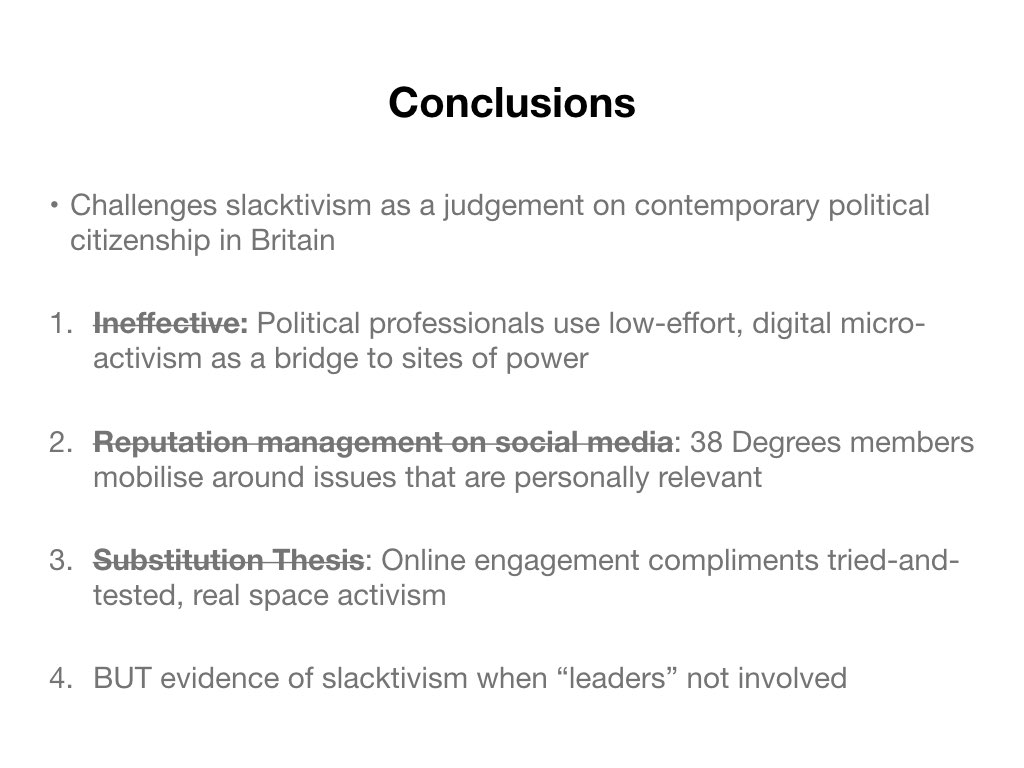38 Degrees is a non-profit, political activist group based in the United Kingdom. Since their foundation in 2009, the group has amassed a “membership” of over 3 million people, with donations from their members totalling £4.5 million in 2016. The group boasts an impressive track record across a range of political issues, most notably their campaign against the Conservative-Liberal Democrat coalition government’s plans to sell off public forests in 2011. However, what is most striking about the group is their organisational ethos, “People. Power. Change.” Named after the angle at which snowflakes come together to form an avalanche, individual autonomy is central to the group’s modus operandi. The group does this by mobilising vast, national networks through the use of new communication technologies, predominantly email, but increasingly using Facebook and Twitter.
Drawing upon a three-month participant observation, ethnographic data from interviews with staff and members, as well as campaign emails, content from Facebook and Twitter, and online news articles, this research project examines the role of these emerging, digitally-focused organisations in facilitating political engagement through their use of social media. I explore whether social platforms create new opportunities for political learning, discursive engagement, and political action, or if offline activism is compromised by inefficient online tactics?
In a collaborative project with Andrew Chadwick (Loughborough University), we examine how the group’s innovative forms of digital activism are often dependent on coverage in professional news media.
Publications
Chadwick, A. and Dennis, J. (2017). Social Media, Professional Media, and Mobilization in Contemporary Britain: Explaining the Strengths and Weaknesses of the Citizens’ Movement, 38 Degrees, Political Studies. 65(1), 42-60.
Abstract
Digital media continue to reshape political activism in unexpected ways. Within a period of a few years, the internet-enabled UK citizens’ movement 38 Degrees has amassed a membership of 3 million and now sits alongside similar entities such as America’s MoveOn, Australia’s GetUp! and the transnational movement Avaaz. In this article, we contribute to current thinking about digital media and mobilisation by addressing some of the limitations of existing research on these movements and on digital activism more generally. We show how 38 Degrees’ digital network repertoires coexist interdependently with its strategy of gaining professional news media coverage. We explain how the oscillations between choreographic leadership and member influence and between digital media horizontalism and elite media-centric work constitute the space of interdependencies in which 38 Degrees acts. These delicately balanced relations can quickly dissolve and be replaced by simpler relations of dependence on professional media. Yet despite its fragility, we theorise about how 38 Degrees may boost individuals’ political efficacy, irrespective of the outcome of individual campaigns. Our conceptual framework can be used to guide research on similar movements.
Download here.
Dennis, J. (2016). United By What Divides Us: 38 Degrees and the EU Referendum. In Jackson, D. Thorsen, E. and Wring, D. (Eds.), EU Referendum Analysis 2016: Media, Voters and the Campaign (p. 100). Bournemouth: The Centre for the Study of Journalism, Culture and Community, Bournemouth University.
Dennis, J. (2015). Zombies on the High Street: 38 Degrees and the “Save Our NHS” Campaign. In Jackson, D. and Thorsen, E. (Eds.), UK Election Analysis 2015: Media, Voters and the Campaign (p. 65). Bournemouth: The Centre for the Study of Journalism, Culture and Community, Bournemouth University.
Dennis, J. (2015). 38 Degrees. In Gordon, E. and Mihailidis, P. (Eds.), Civic Media Project [online]. Cambridge, MA: MIT Press.
Dennis, J. (2014, May 22). After the Party - What Can Political Parties Learn From 38 Degrees. openDemocracy.
Dennis, J. (2014, March 17). The Myth of the Keyboard Warrior: Public Participation and 38 Degrees. openDemocracy.
Selected talks
Dennis, J. (2017). Public Contention in the Hybrid Media System: 38 Degrees and the Organisational Management of Digital Micro-Activism. Paper presented at the ECPR Joint Sessions Workshop, University of Nottingham, April 26-29.
Dennis, J. (2016). The Organisational Management of Digital Micro-Activism: 38 Degrees and Political Citizenship on Facebook and Twitter. Paper presented at the BSA and ECPR Political Citizenship and Social Movements Conference, University of Portsmouth, June 27-28.
Chadwick, A. and Dennis, J. (2014). “People. Power. Change.”: 38 Degrees and Democratic Engagement in the Hybrid Media System. Paper presented at the American Political Science Association Annual Meeting, Washington, DC, August 28-31.
Dennis, J. (2013). Welcome to the Afterparty: 38 Degrees, Social Media and the Rise of New Repertoires of Political Engagement. Paper presented at the Political Studies Association Annual Conference, Cardiff, March 25-27.
